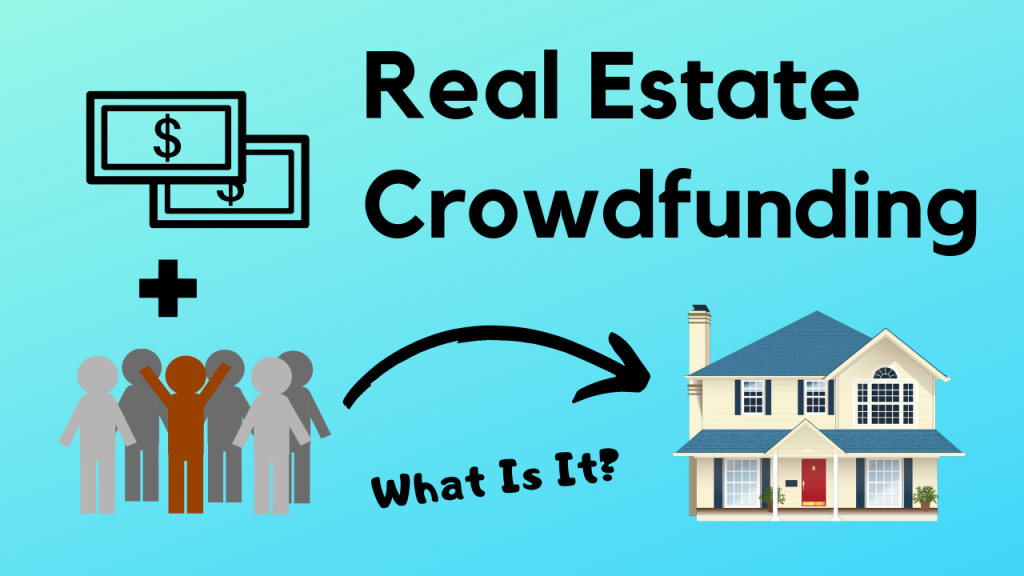If you’re looking for a new and exciting way to invest your money, Real Estate Crowdfunding may be just what you’re looking for. This is a relatively new investment option that allows individuals to invest in Real Estate Projects through a crowdfunded platform. In this blog post, we will discuss real estate crowdfunding and how to get started. We hope this information will help you make an informed decision.
What is Real Estate Crowdfunding?
The basic idea behind Real Estate Crowdfunding is that it allows everyday investors to get access to real estate investments, which have traditionally been reserved for high net worth individuals. In the past decade or so, various laws and regulations have opened up this investment option to anyone who has a few extra dollars in their pocket and wants an opportunity at higher returns.
Before we discuss how you can begin investing in real estate through crowdfunding, let’s talk about what exactly crowdfunded real estate is:
- It means that several people are contributing small amounts of money toward funding a specific project (usually $50-$100). However, there are also some platforms out which allow you to invest as little as $25.
- Real estate crowdfunding platforms allow you to invest in a variety of different projects, including apartment buildings and commercial property funds. Many also give investors the option to choose which real estate project they want their money invested in (i.e., single-family homes versus multi-unit properties).
How Does Crowdfunded Real Estate Work?
The idea behind these websites is simple: They aggregate small amounts from many people into one large fund that can be used toward funding larger projects like residential developments or luxury condos on Miami Beach Boulevard.
So, how do you get started?
To begin investing in Real Estate through a crowdfunding platform, the first step is to create an account. This process usually takes just a few minutes and can be done on the website’s homepage. You’ll need to provide some basic information about yourself, including your name, email address, and phone number.
Once you’ve registered for an account, it’s time to start browsing projects. Most platforms have filters that allow you to search by location (city or zip code), investment amount ($25 minimum), project type (residential or commercial), or rating from previous investors. It’s also important to read the project pitch carefully before investing; this will give you a good idea of what the property is, what the expected returns are, and how much money you’ll be risking.
Once you’ve found a project that interests you, it’s time to start investor due diligence. This is an important step in order to make sure the investment aligns with your goals and risk tolerance. In particular, you’ll want to review the property’s financials and team members involved in the project. You should also ask any questions you have about the investment before moving forward.”
So, real estate crowdfunding offers everyday investors access to opportunities that were once reserved for high net worth individuals. It is an exciting way to invest your money and can provide higher returns than traditional investments options like stocks or bonds. However, it is important to do your research before investing so you can ensure your money goes toward a project that aligns with your goals.
Learn More: How to Run a Successful Crowdfunding Project: Tips From Successful Creators
What are Real Estate Crowdfunding Platforms?
These are online platforms that allow you to invest in different types of real estate projects. They do this by pooling money from multiple investors and then using it as collateral against the purchase price or construction costs for a given project; if successful, returns can range anywhere from three percent annually up all depending on how much risk was involved with your investment (and thus what kind of return rate could be expected).
You’ll find that many of these sites offer both residential and commercial property investments – meaning there’s something out there for everyone! If you’re looking at investing in one type of property or another, you’ll want to make sure the crowdfunding platform you’re considering offers what you’re looking for.
Fundrise and RealtyMogul are at the top of the list of Real Estate Crowdfunding sites.
Learn More: Top 5 Real Estate Crowdfunding Platforms
The Risks Involved
As with any investment, there are risks involved when investing in real estate through crowdfunding platforms. These can range from the project not being completed (and thus no return on investment) to something happening that causes the value of the underlying asset to drop significantly (meaning your initial capital is at risk). It’s important that you understand these risks before handing over your hard-earned cash!
Regulations Governing Real Estate Crowdfunding
The reason why real estate crowdfunding has become so popular recently is because of new regulations that have been put in place to govern this type of investment activity. These regulations vary from country-to-country (or even state-to-state), so it’s important that you do your homework before investing through a crowdfunding platform!
Generally speaking, the key regulation that needs to be followed is how much an individual can invest in any given project. In the United States, for example, the limit is set at $200,000 per year – meaning if you want to invest more than that amount you’ll need to spread it out among different projects.
Conclusion
That’s it for now – we’ve just scratched the surface when it comes to Real Estate Crowdfunding! In future blog posts, we’ll dive a bit deeper into some of the topics that were mentioned here. For now, if you’re interested in getting started with this type of investment, be sure to do your homework and read up on the regulations that are specific to your country or state. Happy investing!



